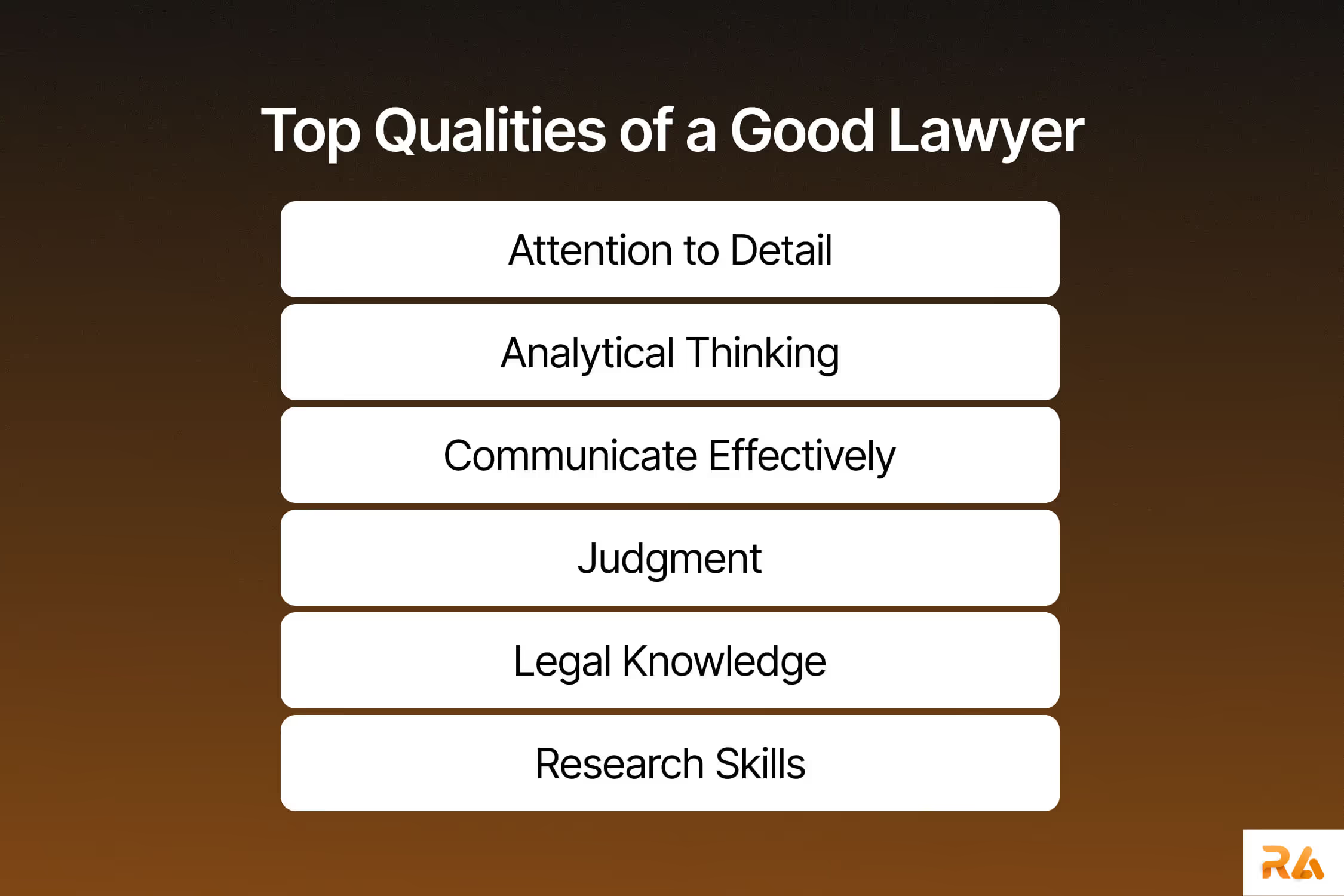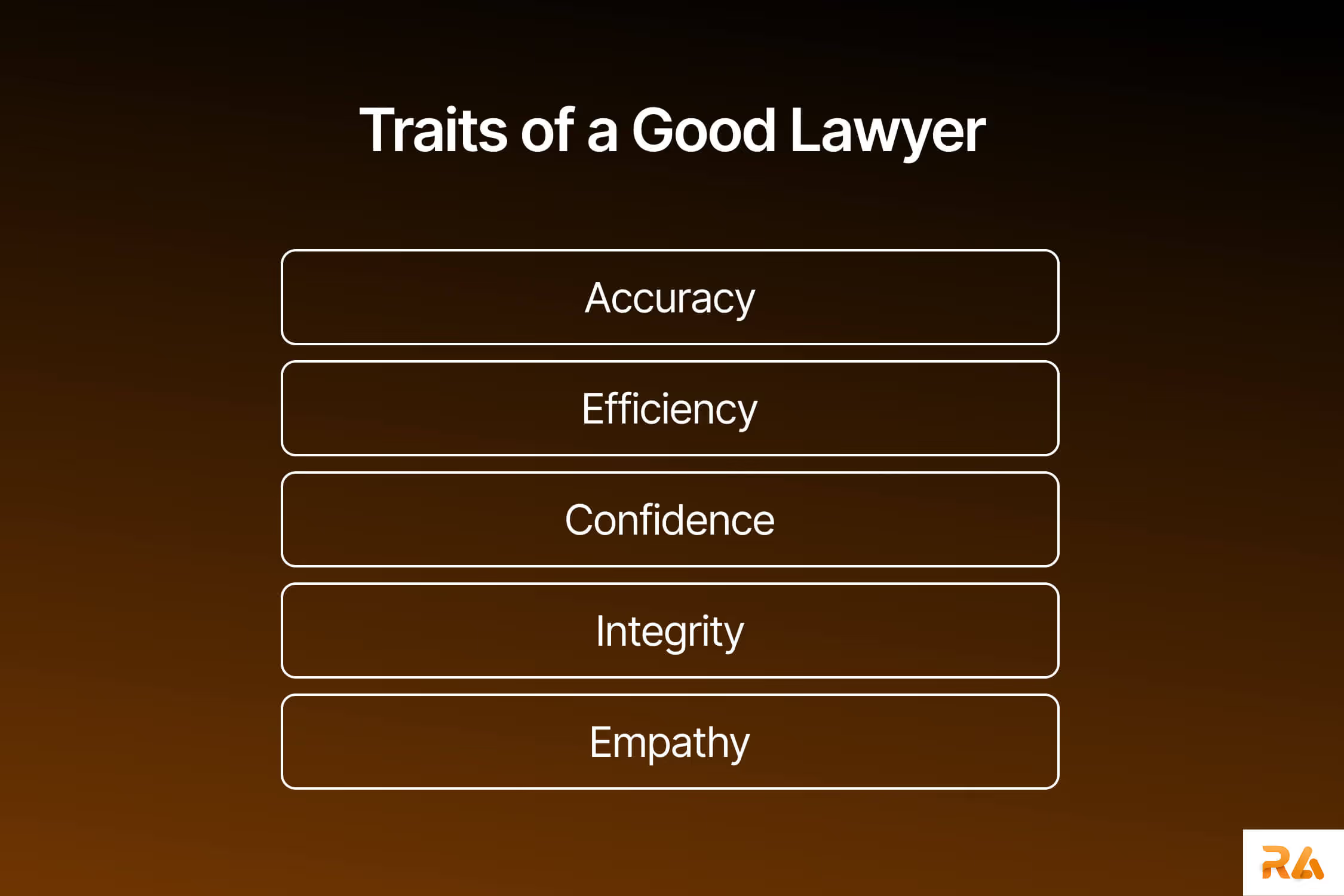Growing up, you may have been inspired by different events, moments, or individuals that led you to pursue a career in law. A popular belief—not just in law but across many professions—is that top lawyers are born with natural talents that set them apart. As you go through law school and become a licensed attorney, you might wonder how successful lawyers developed their strengths and achieved greater success, even though you followed the same educational path.
But if you take a closer look at what these successful lawyers actually do, you’ll discover that their strengths aren't innate gifts. They were built through hard work and focused effort to hone specific skills and qualities.
Nearly all successful lawyers share one common trait—they actively seek opportunities to improve and maintain genuine passion for their work. It’s not about trying to be good at everything and ending up average. It’s about discovering where you truly excel and developing those strengths to differentiate yourself from other lawyers and build your reputation.
If you want to set yourself up for long-term success in the legal profession, the first step is understanding the core qualities and traits that define great lawyers—and committing to cultivating them in your own career.
Defining a Lawyer’s Quality
A lawyer’s quality refers to the skills, attributes, and characteristics that influence their professional competence and effectiveness. These qualities reflect a lawyer’s professional identity and are measured by their ability to serve clients, navigate legal issues, and uphold the standards of legal practice. Examples include courtroom advocacy, legal research proficiency, clear client communication, and adherence to ethical standards. Lawyer qualities can often be assessed objectively through indicators such as case outcomes, peer evaluations, and client satisfaction.
Defining a Lawyer’s Trait
A lawyer’s trait refers to the personal characteristics and behavioral patterns that distinguish how they approach their work and interact with others. These traits influence how a lawyer handles challenges, makes decisions, and maintains relationships within the legal field. Traits tend to remain relatively stable over time and across different situations. They represent the “how” behind a lawyer’s approach to practice—shaping how they naturally respond to the demands of their profession.
Top Qualities of a Lawyer

Here are the essential qualities every lawyer can develop. From analytical thinking to clear communication, strengthening these qualities can help you manage your legal practice more effectively at every level.
Attention to Detail
In law, small oversights can have serious ramifications. Consider this scenario: you're asked by the court to submit a document but forget or overlook the request. It may seem like a small oversight, but courts rely on the cooperation of all parties involved to function effectively, and failure to comply could result in compromising the case or violating procedural requirements.
To develop a lawyer's quality that clients and professionals trust, having attention to detail and being meticulous in your work is a key goal to pursue. This helps you avoid errors and ensures that all aspects of a legal matter are thoroughly addressed.
Analytical Thinking
From law school to legal practice, , a lawyer's tasks heavily rely on gathering and absorbing large amounts of information. Analytical thinking allows you to process and identify key facts, relevant laws, and potential outcomes while considering multiple perspectives and scenarios.
Therefore, this quality is essential for a lawyer to develop legal strategies and provide clients with well-reasoned advice.
Communicate Effectively
Being orally articulate and having strong written communication skills are essential qualities that lawyers must possess. The ability to explain complex legal concepts in understandable terms, argue convincingly in the courtroom before juries and judges, and negotiate effectively on behalf of clients distinguishes lawyers from their peers.
Written communication is important for producing legal documents that are precise, clear, and concise. Equally important is active listening, which helps you understand clients' perspectives and needs so you can provide more effective advice and can lead to better outcomes in their cases.
Judgment
There will always come a time when you have to display the ability to make rational, logical decisions and sound judgment calls in legal matters under pressure with limited information. Good judgement involves critical thinking and quick reactions, especially in arguments, to spot points of weakness in the opposition and strengths in your client's case.
It also includes knowing when a claim is worth pursuing or when a settlement is the better path. While often overlooked, sound judgment is one of the qualities that often distinguishes successful lawyers from others, as having good judgment is what helps win cases and maintain longevity in the field.
Legal Knowledge
You must have strong knowledge of the law as it serves as your foundation for developing your practice. However, it's not necessary to be highly knowledgeable in all areas of law. It's best to choose your area of practice, prioritize it, and dedicate yourself to deepening your knowledge and understanding of that particular field. Having specialized knowledge is what clients look for, and it can positively transform your practice.
Research Skills
Having knowledge and developing good judgment is supported by research skills. Lawyers who know how to efficiently sift through large amounts of information and find critical details can build effective legal strategies and well-reasoned arguments and documents.
Top Lawyer Traits

When practicing law and representing legal matters, lawyers are chosen by clients due to their success and distinction from others. But what personality traits make a lawyer unrivaled? According to Thomson Reuters' SharpLegal data, the three driving factors are accuracy, efficiency, and confidence. Let's explore the detailed reasons why, along with additional traits to consider.
Accuracy
Maintaining accuracy is the fundamental trait for providing error-free and reliable legal advice. It involves a lawyer's meticulous attention to detail in all stages of case management. This trait is essential for building a case on a solid foundation, as a single inaccuracy can compromise an entire case or legal strategy. Given the constant changes in legislation, an accurate lawyer must be diligent in keeping up to date with new laws and regulations to ensure their advice is always current.
Efficiency
Effective lawyers understand that time is often their most valuable resource and their clients' investment. Efficiency is the trait of delivering legal work in a timely manner without sacrificing accuracy. An efficient lawyer manages their time well, avoiding unnecessary activities like triple-checking information or getting bogged down in non-billable tasks. This trait is crucial for a law practice's financial health, as it maximizes billable hours and ensures that resources are used productively.
Confidence
This trait is built upon a foundation of accurate and efficient work and is key to cultivating strong client relationships and career advancement. A competent lawyer demonstrates self-assurance in their legal knowledge and advocacy skills, which directly impacts their effectiveness in legal matters. It is an attribute valued by clients, peers, and firm management alike.
Integrity
Following the three traits above, integrity is how legal professionals maintain the highest ethical and moral standards in every aspect of their practice. Integrity forms the foundation of trust and honesty between lawyer and client, and with the legal system itself. Your integrity ensures that you act in your clients' best interests while upholding the principles of justice and the law.
Empathy
Lawyers must recognize that behind every legal matter is a human being facing challenges and concerns. Empathy shapes this understanding, it involves comprehending not just the legal facts, but the emotional and personal impact on their clients. Having empathy allows you to connect with clients on a genuine level, which builds stronger professional relationships and helps you develop more effective counsel.
How a Lawyer’s Qualities and Traits Benefit Legal Practice
The qualities and traits outlined above can significantly contribute to a more effective legal practice in measurable ways.
Build Stronger Client Relationships
Your communication skills and empathy work together to build trust with clients. When you can explain complex legal processes in terms clients understand, you reduce their anxiety and increase their confidence in your representation.
Better Case Outcomes
When you combine analytical thinking with attention to detail, you create a foundation for stronger case preparation, which directly affects the strength of your legal position. Research skills enable you to uncover supporting documentation and case law that others might miss, while sound judgment helps you determine which arguments will resonate most effectively with judges and juries.
Enhanced Professional Credibility
When you operate with integrity and confidence, your reputation within the legal community grows. Your colleagues and clients will know you maintain high ethical standards and are reliable. A solid reputation can lead you to more referrals and opportunities, ultimately helping your practice grow.
Long-term Career Sustainability
The combination of all these qualities and traits creates a sustainable career path. Together, it creates a practice that can adapt to changes in the legal landscape while maintaining consistent growth.
What Makes a Good Lawyer Standout?
A "good lawyer" can mean many things, but one thing is clear: your success will be defined by your own values. The field of law allows you to decide what success looks like for you, whether it's building a profitable practice or a reputation for winning cases.
Once you have a clear definition of what you want to achieve, you can start building the qualities and traits that will get you there. After all, the skills that make you an effective lawyer are deeply connected to who you are.
A lawyer who can think quickly on their feet, solve problems, and communicate clearly will always be in demand. Ultimately, your personality, professionalism, and legal knowledge are the tools you'll use to build your own version of a successful legal practice.
The beauty of the legal profession lies in its diversity of paths to success. Whether you're drawn to corporate law, family law, or public interest work, these qualities will set you apart in a competitive field.

Helpful Questions About Becoming a Good Lawyer
Why are qualities essential in legal practice, and how can I develop them?
Having qualities like attention to detail, analytical, communication, judgment, legal knowledge, and research skills shapes a lawyer's professional conduct and client interactions. Development occurs through mentorship, continuing education, practice experience, and regular self-reflection.
Are technical skills important for lawyers today?
Yes, technical skills are important, proficiency for current legal software, technology, and other digital tools that are essential to effectively perform document management, legal research databases, e-filing systems, and case management software.
Why are research and analytical abilities critical for lawyers?
Research and analytical abilities are critical because they enable a lawyer to identify and apply the law to specific cases.
How does building strong client relationships impact legal practice?
Strong lawyer–client relationships improve communication and increase client satisfaction, which can lead to repeat business, referrals, and a positive reputation.


.webp)

.webp)